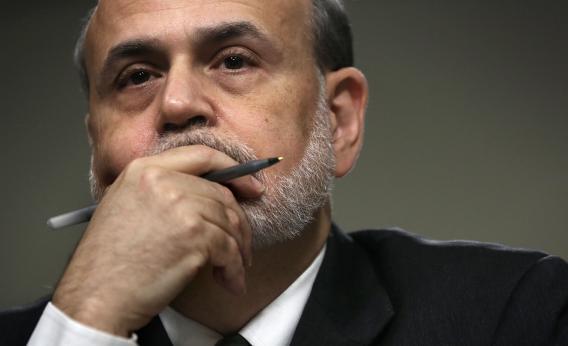Ben Bernanke’s appearances before Congress are usually a parade of clueless questions, but Sen. Amy Klobuchar of Minnesota just asked him a great one. Noting that some members of Congress think the Fed should drop its dual mandate on inflation and unemployment and just focus on price stability, she asked Bernanke to explain what he would do differently if the mandate changed.
Bernanke hemmed and hawed a bit, but the crux of his answer was: nothing.
He seemed to interpret the question as perhaps an attack on his inflation record, but his answer was a damning attack on his growth record. (His answer starts around the 39-minute mark here.) Bernanke noted that “inflation, if anything, is a little bit too low” and said that even though many foreign central banks have a single mandate: “I think our inflation record is as good as really any major central bank, and so there’s not really been a sacrifice in that respect.”*
That’s a huge tell right there. Bernanke can’t name a single way in which his policy would change if Congress rescinded his legal mandate to attempt to maximize employment. In other words, he’s ignoring that mandate. The Federal Reserve’s attitude with respect to price inflation has been identical to what its attitude would be in a world in which it wasn’t legally required to care about inflation. And that attitude is hammering the economy. Normally there’s no substantial tradeoff between inflation and unemployment, but things are different at the zero bound. Once nominal interest rates reach zero, the most potent way to reduce real interest rates is to raise expectations of future inflation. Lower real rates mean more investment and more durable goods purchases—in other words more jobs. So right now there is an inflation-unemployment tradeoff, and Bernanke is behaving as if he has no employment mandate.
But he does have an employment mandate. Members of Congress should be following up on Klobuchar’s groundwork and asking him about this. So far, though, it’s been crickets.
*Correction, May 22, 2013: This post originally misquoted Ben Bernanke.
